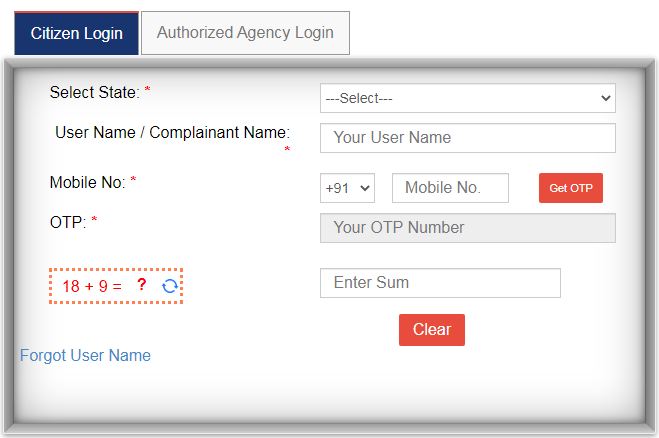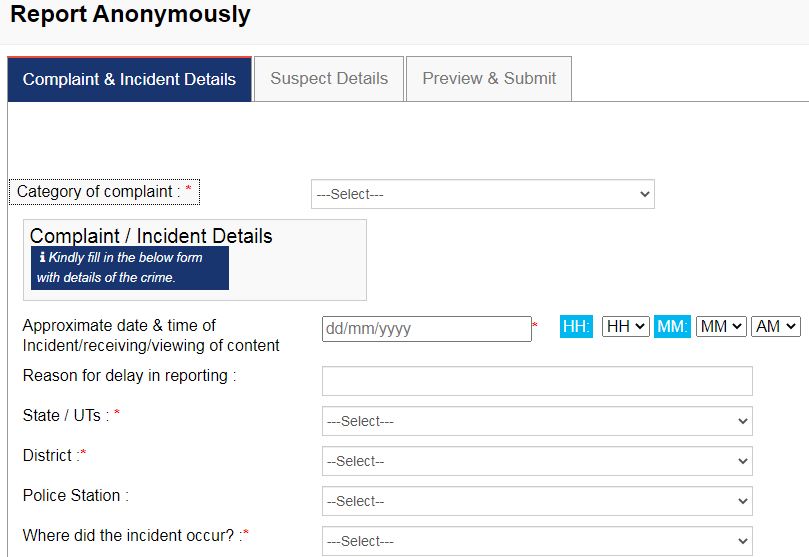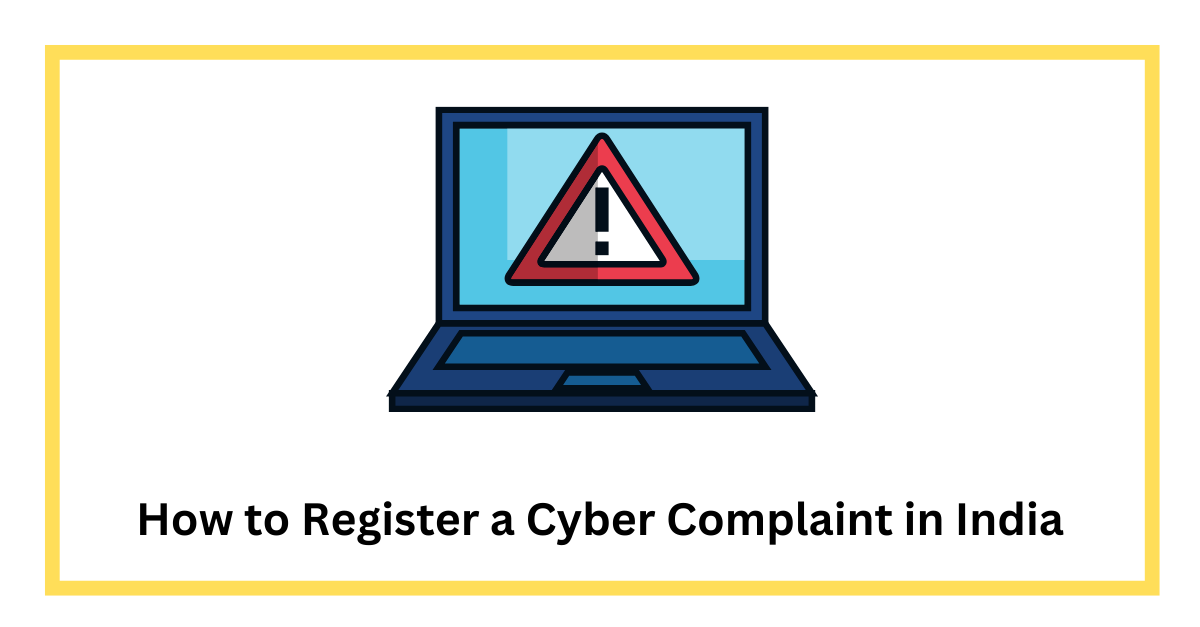How to file a Cyber Crime Complaint in India? Read this blog to know and also learn about the measures to stop them.
Nowadays computers, internet, data, coding and digitisation have all become ingrained in our daily lives. They have made our lives easier by increasing accessibility and convenience. It does, however, have a disadvantage in that it renders people more vulnerable to attacks from anywhere in the world. Cybercrime has changed over time, from telecom hackers to crypto-jacking. Cybercriminals are wreaking havoc on the internet, inventing new ways to defraud people. below lets have look at register a cyber crime complaint online.
What Exactly is a Cybercrime?
Cybercrime is a crime that occurs on the internet using technology and falls under the category of cybercrime. Cybercrime is defined as any criminal or unlawful conduct that employs a networked device or a computer, either directly or indirectly, to commit additional crimes. Phishing, hacking, virus attacks credit card fraud, and cyber terrorism are examples of common cybercrimes. Due to its global jurisdiction, the Indian Information Technology Act expressly provides that a cybercrime complaint can be submitted at any cyber cell.
Types of Cyber Crimes
Cybercrime encompasses a wide range of actions. At one end of the spectrum are crimes involving basic violations of personal or business privacy, such as attacks on the authenticity of information housed in digital depositor and the misuse of illegally obtained metadata to blackmail a company or individual. Identity theft is another major crime at this end of the scale.
Transaction-based crimes include fraud, digital piracy, trafficking in child pornography, counterfeiting, money laundering etc., These are individual crimes with specific victims, yet the culprit hides behind the Internet’s relative anonymity.
Another aspect of this sort of crime is persons within organisations or government agencies purposefully changing data for financial or political gain. At the other extreme of the spectrum are crimes involving trying to disrupt the operation of the Internet itself.
These vary from hacking, spam’ denial of service attacks against individual websites to cyberterrorism—the use of the Internet to inflict public disruption and even death. The misuse of the Internet by nonstate actors to disrupt a country’s economic and technological infrastructure is referred to as cyberterrorism.
Who is its Target?
The majority of cybercrime involves an attack on personal, corporate, or government information. Although the attacks do not target physical bodies, they do target personal or corporate virtual bodies, which are the set of informational qualities that define persons and entities on the Internet. In other words, our digital identities are crucial parts of daily life in the digital age: we are a collection of numbers and identifiers stored in many computer systems held by governments and companies. Cybercrime emphasises the importance of computer networks in our lifestyle, as well as the vulnerability of supposedly firm truths like human identification.
How to Register a Cyber Crime Complaint in India?
The initial step for a complainant of cybercrime is to file a formal statement by lawyer or with any cybercrime unit in India. The Information Technology Act makes cybercrime an element of worldwide jurisdiction, therefore anyone can access any cybercrime cell. A cybercrime complaint can be filed online at https://cybercrime.gov.in/ or offline. On a weekday from 9:00 a.m. to 6:00 p.m., you can also call the Ministry of Home Affairs’ dedicated cybercrime complaint line at 155260.
The cybercrime application letter must be sent to the Head of the Cybercrime Cell and include information such as name, address email I.D., and phone number.
Certain documents are necessary to file a complaint based on the nature of the cybercrime. This need varies according to the offence and serves as substantiating evidence to support a case.
If your city lacks a cybercrime cell, you can file a FIR with the local police station. If they refuse to take the complaint, the city’s Commissioner or Judicial Magistrate should be contacted.
How to File a Complaint Online:
- If you choose to make a cybercrime complaint online, you can do so as follows:
- Visit https://cybercrime.gov.in and click the ‘File a complaint’ button.

- After accepting the terms and conditions on the following screen, click the ‘Report other cybercrime’ option.

- Select the ‘citizen login’ option. After that enter the necessary information.

- Enter the OTP, complete the captcha, and press the submit button.
- Fill out the form on the following page. This section is separated into four sections; preview the information before submitting it.
- You will be then taken to a page with incident details. Mention the crime’s specifics and supporting proof. C select ‘Save and Next.’

- If you have any information regarding the alleged suspect, please provide it on the following page.
- Once you’ve completed all of the fields, click the submit button.
- Documents Required to register a Cyber Complaint:
- For a complaint on Email Abuse
- A written complaint that details the full occurrence,
- A copy of the alleged criminal’s mail,
- The whole heading of the suspected email,
- Email trail mail hard and soft copies.
Fake calls, Internet banking, and fraudulent financial online transactions or lottery scams
- Bank statement copies for the previous six months
- Allegations of fraudulent transactions will be emphasised
- Proof of spam SMS or claimed deceptive email chain
- Copy of address and identification evidence as per bank records
Complaints about data theft
- Copy of the stolen material, including the copyright certificate
- Details about the employee(s) who allegedly took the data
- Appointment letter and NDA with the alleged employee
How to protect against Cyber Crime
- Do not click on anything Carelessly
- One should not click on any app, pictures, popups, etc.,
- Cheque about any apps before installing it.
- There should be some control imposed by parents on children below 15 years and should never let them use any mobile phones containing your bank account details.
- Taking precautions while using social media is one of the most important things to remember if one does not want to be a victim.
- Do not share any unwanted pictures or send your pictures to anyone even if they pressurise you.
- Do not believe on everything shown on the internet because there are many fraudulent sites which may introduce viruses in your mobiles, computers, etc, which may steal your personal information without your own knowledge.
- At last, if you think that you have become a victim of cybercrime, immediately convey the whole situation to your parents and file a complaint against it.
Conclusion
In this area of digitalisation, one must be very careful while dealing with any situation. If you become a victim, then immediately and register a cyber complaint to stop that person from making any further nuisance. The cyber crime department in India is well developed and efficiently track down the trouble makers. The laws relating to cyber Crime is not an easy one. So, yes. Be careful and alert while using internet next time. For any further assistance or queries, Contact Vakilsearch.
Also, Read:










